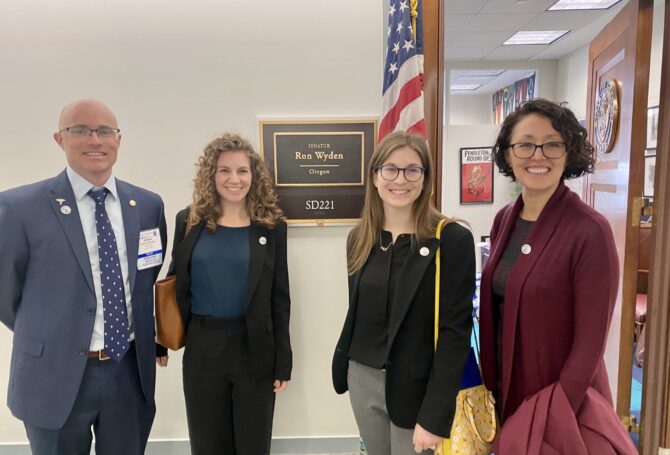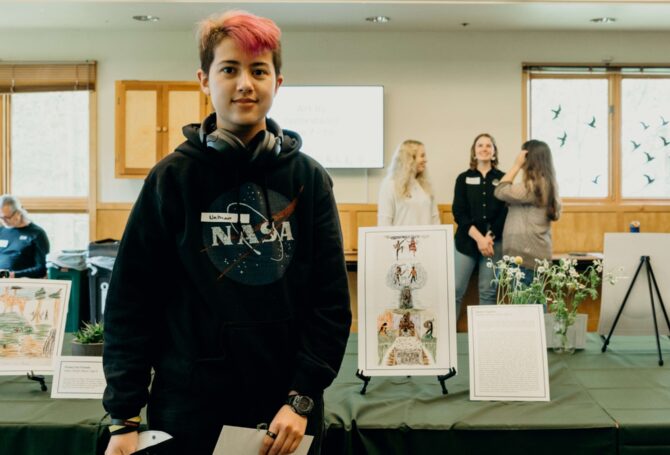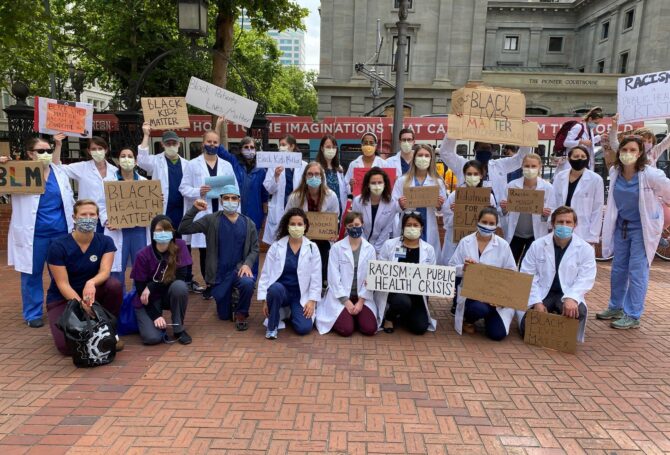October 8, 2019
This summer, I traveled with Sen. Ron Wyden and a small group to a shelter in Ciudad Juarez, Mexico, directly across the border from El Paso, Texas. Under the “Migrant Protection Protocol,” thousands of migrants have been sent back to Mexico to await their asylum application.
There is room in the shelters in Ciudad Juarez for about 1,000 people. At the time we visited, we were told that the remainder of the 10,000 sent back from the El Paso border crossing had to fend for themselves. As most of the migrants have been from Central America and look and speak differently from Mexicans, they have been easy targets of crime. Those in the shelter were lucky to have found a safe place to wait.
As we visited the shelter, one of the men told us he was worried about his pregnant wife, who had been diagnosed with preeclampsia and had been leaking fluid for two days. As a pediatrician, I knew this woman needed immediate medical evaluation as both preeclampsia and premature rupture of membranes can endanger the lives of both baby and mother.

Photo via Senator Ron Wyden.
Wyden publicly called me “a real hero” for identifying the medical need. I was honored by the praise, but did not feel like a hero. I was just doing what I do every day: assessing risk and making appropriate medical decisions.
If there was any heroism, it came from what we did next working together as a team. The husband spoke up about his concern. I identified a high-risk condition and need for further medical evaluation. Steve Manning, a lawyer from Innovation Law Lab, a Portland-based immigration law firm, knew that international law protected the woman, a Mexican escaping violence, from being returned and forced to stay in Mexico, the country from which she was fleeing. Wyden asserted his authority as a U.S. senator when customs and border protection agents erroneously said there was “no room.” Together we helped this woman cross the border and receive the medical care she and her unborn baby needed.
This story received national attention after an article was published in The Washington Post. The Register-Guard included the story and others on the event.
There is heroism in the lawyers, church leaders, physicians and social workers we met at the border, who tirelessly help migrants in both the U.S. and Mexico. Portland Rabbi Michael Cahana traveled with us and spoke of the similarities between the treatment of the migrants and the treatment of Jews before and during World War II. His presence provided the reminder that people have been cruel to others throughout history, and heroes have stood up to this cruelty.
In our own community, we have many quiet heroes. I encounter heroism every day as the immigrant parents in my clinic continue to emphasize to their children the values of respect, responsibility and education despite the anti-immigrant political climate. I know people who have opened their homes and hearts to asylum seekers. Others support family members left behind when loved ones are deported. Teachers, librarians, charitable organizations and other people in our community continue to treat all with dignity and respect.
So often in this country we emphasize the importance of individual accomplishment and we see heroes as individuals. In this time, in this country, the forces of cruelty, of those stepping on others to benefit themselves, are so great that I doubt that there are many individual heroes. Instead, heroism comes in combining our efforts and in working compassionately for our ideals.
– Lauren Herbert, MD
This article was originally published in the Register-Guard on October 6, 2019.



